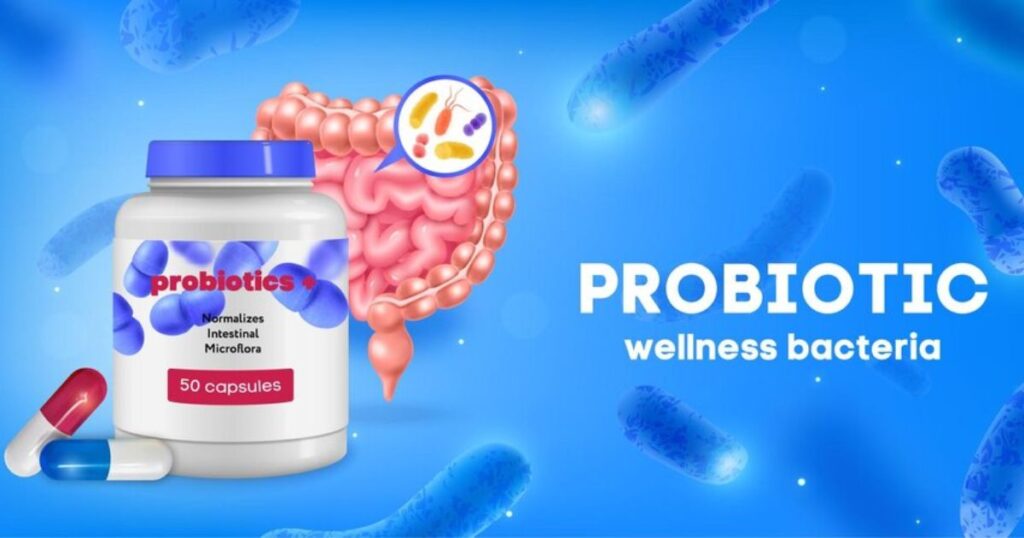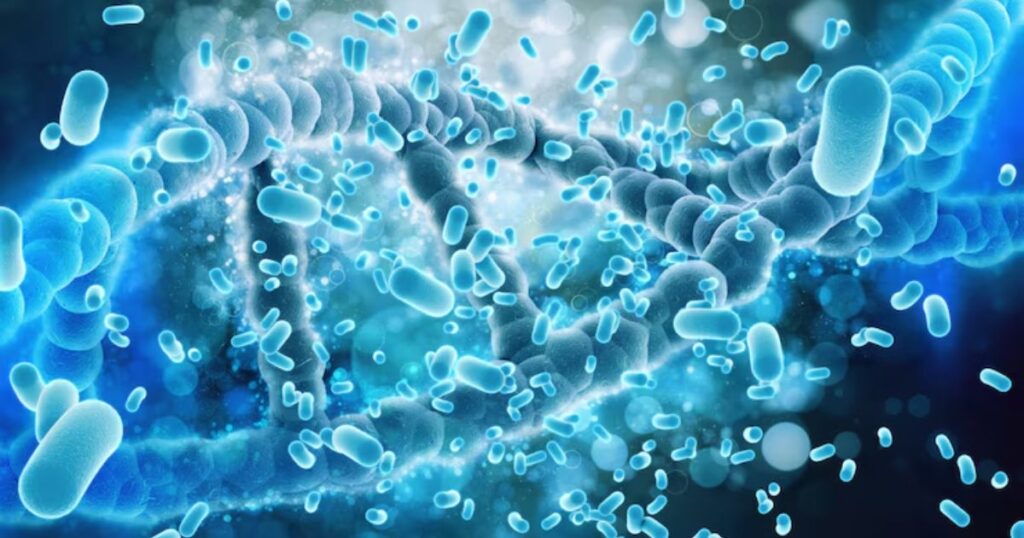Probiotics are a popular topic in health, especially for those wanting to improve their digestion and general well-being. But when you begin using probiotics, you might ask yourself, “How long before I see a difference?” In this article, we’ll explore what probiotics are, how they help your body, and how much time it might take to work
What Are Probiotics?
Probiotics are live microorganisms, often referred to as “good bacteria,” that offer several health benefits when consumed in the right amounts. They naturally exist in your body, particularly in your gut, but can also be taken through supplements and certain foods like yogurt and kefir.
- Improved digestion
- Reduced bloating and gas
- Enhanced immune function
- Better skin health
- Reduced symptoms of certain conditions like Irritable Bowel Syndrome (IBS)
How Do Probiotics Work in the Body?
Probiotics work by restoring the natural balance of bacteria in your intestines. They help to keep the bad bacteria in check while boosting the population of beneficial microbes that help with digestion and nutrient absorption.
Not all probiotics are the same. There are different strains, and each plays a unique role in supporting your health. For example, Lactobacillus may help with digestion, while Bifidobacterium may support the immune system. The strain you choose matters depending on the health issue you are targeting.
How Long Do Probiotics Take to Work?
The goal of taking probiotics, the individual’s health status, and the particular strains of probiotics used can all affect how long it takes for them to work. In general, some people might start to see benefits in a matter of days or a week, while others might not notice any noticeable changes for several weeks or even a few months.
Improvements for immune system support or mental health may take longer to manifest, however improvements for digestive problems may happen quite soon. For the best effects, it’s crucial to take probiotics consistently and to adhere to the suggested dosage throughout time.

Probiotics for Digestive Health
You may see results in as short as a few days to two weeks if you’re taking probiotics for digestive issues like bloating or constipation. Probiotics aid in gut regulation, facilitating easier digestion and lessening discomfort.
- Reduced bloating
- Easier bowel movements
- Less frequent indigestion
Probiotics for Skin Health
Because of the intimate relationship between your stomach and skin, digestive issues may be the cause of skin conditions like eczema or acne. Digestive problems might clear up faster, but advantages to the skin might take longer.
After using probiotics consistently for 4 to 8 weeks, you should see obvious benefits in your skin. With time, you might notice less irritation and clearer skin.
- Reduced acne breakouts
- Less irritation and redness
- Improved skin texture
Probiotics for Immune Support
By supporting healthy immune responses and enhancing the synthesis of natural antibodies, probiotics can also strengthen your immune system.
It usually takes three to four weeks of consistent probiotic consumption to notice a stronger immune system and fewer illnesses, particularly during the cold and flu season.
How Do You Know if a Probiotic is Working?
A probiotic’s effectiveness can be determined by a number of variables, one of which being the particular health conditions it is intended to treat. The following symptoms could mean that taking probiotics is helping:
- Better Digestion: A clue that probiotics are helping is a decrease in bloating, gas, or pain after meals.
- Frequent Bowel Movements: Easier and more regular bowel movements may indicate better gut health.
- Improved Immune Function: Reduction in colds and infections could be a sign that probiotics are helping your body fight against infections.
- Mood and Mental Health: Several individuals report feeling happier or less anxious, which may have a beneficial impact on gut-brain health.
- Skin Health: Recovery from ailments like eczema or acne may also indicate a probiotic’s helpful effects.
- Duration of Use: It’s possible that your probiotics are working if you’ve been taking them consistently for a few weeks and observe these effects.

Signs That Your Probiotic May Not Be Working
Digestive Problems Persist: If you’re still having gas, bloating, constipation, or diarrhea, it’s possible that the probiotic isn’t improving the health of your gut.
Absence of Symptom Improvement: If you’re taking probiotics for a particular problem (such as anxiety, eczema, or IBS) and after a few weeks you don’t see any improvement, it may be a sign that the probiotic isn’t right for you.
Increased Symptoms: When beginning a probiotic, some people report feeling more uncomfortable in their digestive tracts. This could indicate that the strain is incompatible with your gut flora.
No Change in Frequency of Illness: Probiotics meant to increase immunity may not be helpful for you if you still get sick regularly (e.g., colds or infections).
No Mood or Mental Health Improvement: If you’re taking probiotics for mental health purposes but don’t notice any reduction in anxiety or mood, it can mean the strains aren’t beneficial for you.
Short Expiration or Improper Storage: Your probiotic may have lost its potency if it has expired or has not been stored correctly (most require refrigeration).
No Alterations in the Gut Microbiome: A few individuals have tests done to examine their gut microbiomes both before and after beginning probiotics. Ineffectiveness could be suggested if there are no improvements.
Absence of a Diverse Diet: A balanced, healthful diet is the ideal complement to probiotics. Your probiotics may not flourish if you’re not consuming a healthy diet.
What To Do If Your Probiotic Isn’t Working?
1. Assess Your Probiotic
Verify that the strain you’re taking is appropriate for your unique needs. For example, Lactobacillus rhamnosus is often recommended for gastrointestinal issues, while Bifidobacterium bifidum can help with overall gut health.
Make sure the product you’re taking has enough CFUs. Finding a probiotic with at least 10 billion CFUs per dosage is a common recommendation.
2. Reassess Your Dosage and Timing
If you’re not having any negative affects, you might want to think about progressively upping the dosage to see if that helps.
To see if taking your probiotic with meals or at different times of the day enhances its effectiveness, try doing so.
3. Maintain Consistency
Make it a daily routine to take your probiotics. To make sure you’re consistent, set reminders or include them in your daily schedule.
4. Consult a Healthcare Professional
See a medical expert if you’ve tried a variety of strains and dosages and nothing has helped. They can assist uncover any underlying concerns and may recommend specific probiotic formulations or other therapies.
5. Evaluate Your Diet
Meals known as prebiotics nourish the beneficial microorganisms in your stomach. Fibre-rich foods like bananas, onions, and garlic can support the health of your probiotics.
Consuming a lot of sugar and processed foods might damage gut flora and negate the advantages of probiotics. Maintain a diet high in whole foods and well-balanced.
6. Explore Alternatives
If probiotics continue to be ineffective, consider other options to support gut health, such as:
- Fermented Foods: Foods like yogurt, kefir, sauerkraut, and kimchi contain natural probiotics.
- Digestive Enzymes: These can assist in breaking down food and improving digestion.
- Gut Health Supplements: Some supplements can help support gut health without being classified strictly as probiotics.
7. Monitor Your Symptoms
Maintain a journal to record your dietary adjustments, supplementation, and symptoms. When speaking with a healthcare provider about your concerns, this information can be quite helpful.

Are There Any Risks or Side Effects to Taking Probiotics?
Probiotics are generally regarded as safe for the majority of people, however there are some risks and side effects to be aware of. The following are some possible worries:
- Digestive Problems: When taking probiotics, some people may feel gas, bloating, or minor digestive disturbance, particularly if they take high amounts.
- Infections: Probiotics have the rare potential to cause infections, especially in those with compromised immune systems or underlying medical disorders.
- Interaction with Medications: If you use medicine, it’s crucial to see a healthcare professional as probiotics may cause interactions with some medications.
- Overgrowth: Excessive probiotic use can occasionally result in bacterial overgrowth, which could upset the equilibrium of gut flora.
- Allergic Reactions: Although rare, certain probiotic strains may cause allergic reactions in certain individuals.
- Not for Everyone: Before beginning probiotics, anyone with significant medical issues or weakened immune systems should exercise caution and speak with a healthcare provider.
Conclusion
Probiotics can help keep your gut, skin, and immune system healthy, but they don’t work right away. The time it takes to see results can be different for everyone. For some, it might take a few days, while for others, it could be weeks. The important thing is to use them regularly and pick the right type that matches your needs.
People Also Ask
1. How soon can you feel the effects of probiotics?
Probiotics often take effect in a few days. In roughly one to two weeks, some people start to experience changes in their energy levels or digestion. However, depending on your body and the purpose of your use, it may take up to a month to see the full advantages.
2. What are the signs that probiotics are working?
Improved digestion, reduced bloating, and more frequent bowel movements are indications that probiotics are having an effect. With the beneficial bacteria balancing out your stomach, some people may also feel a boost in their energy, attitude, or skin health.
3. Do probiotics work immediately?
Most people find that probiotics don’t work immediately away. It takes time for them to accumulate in your digestive system and begin to promote better health. A week or two is usually enough for most people to notice some improvement, although the complete results could take longer.
4. Why do probiotics take time to work?
Because probiotics must establish themselves in your gut, their effects take time to manifest. Depending on your diet, health, and the probiotic strain, your body may need a few days to a few weeks to acclimate to the new bacteria.
5. How long should you take probiotics for?
For significant benefits, probiotics should be taken for at least four weeks. You might need to take them frequently in order to see long-term effects. Always consult a physician to determine your best course of action.









Leave a Reply